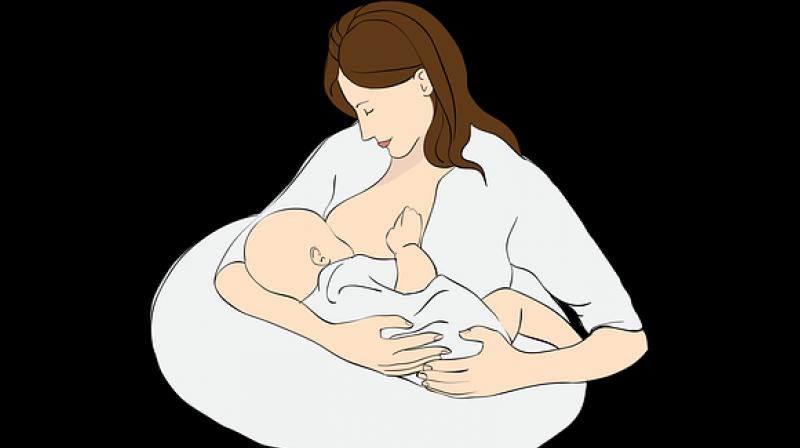Breast milk helps protect newborns from developing food allergies: Study
Most children do not develop food allergies, regardless of how they are fed, while some children develop allergies despite an optimal diet.

Breast milk of mothers who eat foods that commonly cause allergy, such as milk, eggs and peanuts can help protect newborns from developing food allergies, a study has found.
Researchers at Boston Children's Hospital and Harvard Medical School in the US found that breastfeeding can promote tolerance to the foods that most often cause allergies.
In mice, milk from mothers exposed to egg protein gave protection against egg allergy not only to the mothers' own offspring, but also to fostered newborns whose birth mothers had not received egg.
Newborns gained an insignificant degree of protection from mothers who were exposed to egg during pregnancy but did not breastfeed them.
The protective effect was strongest when the newborns were born to and nursed by mothers who were exposed to egg before and during pregnancy and breastfeeding.
The findings published in the Journal of Experimental Medicine are consistent with new dietary recommendations for pregnant and nursing mothers.
Previous research had not been conclusive, with some studies indicating a protective role for breast milk, and others suggesting that children could become allergic to foods they encountered through their mother's diet.
Pregnant and breastfeeding mothers were sometimes cautioned against consuming foods that commonly cause allergy, such as milk, egg, peanut, tree nuts, soy, wheat, fish and shellfish.
More recently, feeding peanut foods to infants at high risk for peanut allergy was shown to decrease, not increase, the babies' likelihood of developing allergy to peanut.
Allergists now recommend that, unless mothers already have diagnosed food allergies, they should not avoid allergenic foods while pregnant and nursing.
"This elegantly designed and controlled study shows that mothers should feel free to eat a healthy and diverse diet throughout pregnancy and while breastfeeding," said James R Baker, CEO and Chief Medical Officer of Food Allergy Research & Education (FARE).
"Eating a range of nutritious foods during pregnancy and breastfeeding will not promote food allergies in developing babies, and may protect them from food allergy," said Baker.
At the same time, Baker notes that maternal and early childhood diets do not cause food allergies in children.
Most children do not develop food allergies, regardless of how they are fed, while some children develop allergies even when fed an optimal diet.
"More research is needed to untangle the factors contributing to make food allergies much more prevalent in recent decades," scientists said.
The food allergy protections described in the study are dependent on specific proteins, some provided by the mother, others by the offspring.
By identifying these proteins and proposing a mechanism through which mother and offspring contribute to the development of food tolerance in the newborn mouse, the research opens new opportunities to study how the protections break down in the case of food allergy and how such breakdowns might be prevented.

